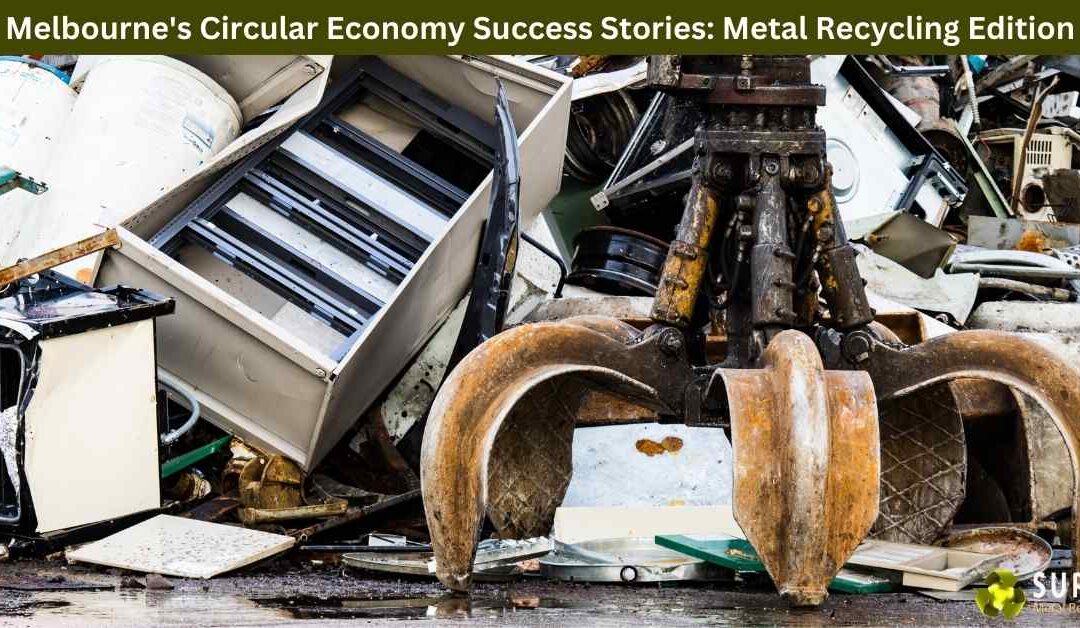Melbourne has earned its place as a leader in sustainability, particularly in the field of metal recycling. With a commitment to building a circular economy—where waste is minimized and resources are reused—Melbourne is home to several standout initiatives that repurpose metals in innovative and impactful ways. These stories highlight how businesses, government programs, and community organizations are coming together to promote sustainable practices, demonstrating that metal recycling is more than just good for the environment—it’s creating a blueprint for economic resilience and social responsibility.
What is the Circular Economy?
A circular economy is an economic model that aims to eliminate waste and continually use resources through the principles of reuse, repair, recycling, and regeneration. Unlike the traditional “take-make-dispose” model, a circular economy emphasizes keeping products, components, and materials at their highest utility and value, creating a sustainable loop. For metals, this means prioritizing recycling and reusing to avoid the environmental impact of mining and processing raw materials.
In Melbourne, metal recycling is at the heart of the city’s circular economy. From large industrial processes to community-based projects, Melbourne’s metal recycling success stories are setting an example for cities worldwide.
Benefits of Melbourne’s Circular Economy Initiatives in Metal Recycling
1. Reduced Environmental Impact
Recycling metal prevents the need for energy-intensive mining and processing of raw ores, which reduces air pollution, conserves water, and minimizes habitat destruction. Melbourne’s approach to metal recycling significantly cuts down on the environmental footprint of both individual consumers and industrial sectors.
2. Economic Growth and Job Creation
The circular economy is creating new jobs within Melbourne’s metal recycling industry. From collection and sorting to processing and manufacturing, the demand for skilled workers in recycling continues to grow. These roles support the local economy while contributing to environmental sustainability.
3. Resource Conservation
By recycling metals like aluminum, copper, and steel, Melbourne conserves valuable natural resources. This conservation is vital for long-term sustainability, as metals are finite and take considerable energy and resources to extract and process.
4. Community Engagement and Education
Melbourne’s recycling initiatives encourage residents to participate in sustainable practices, fostering a culture of responsibility and environmental stewardship. Programs such as CERES’s upcycling workshops and EcoHub’s educational events are instrumental in teaching residents the value of recycling and repurposing metal.
Challenges and the Path Forward
While Melbourne’s metal recycling efforts are impressive, challenges remain in scaling these programs and ensuring efficient processing. Some of the issues include:
- Quality Control: Recycled metals may contain impurities, and managing this quality to meet industry standards can be complex and costly.
- Infrastructure Limitations: Although metal recycling facilities are expanding, infrastructure must continue to grow to meet the rising demand for sustainable practices.
- Public Awareness: More education is needed to ensure that residents and businesses understand how to properly sort and dispose of metals for recycling.
To address these challenges, Melbourne can continue to invest in advanced recycling technology, expand public awareness campaigns, and support policy initiatives that encourage businesses to adopt sustainable practices.
Conclusion
Melbourne’s journey towards a circular economy showcases how communities, businesses, and government entities can work together to make a difference. The city’s successful metal recycling initiatives are setting a powerful example, illustrating the environmental, economic, and social benefits of sustainable practices. By promoting metal recycling and upcycling, Melbourne is reducing waste, conserving resources, and fostering a culture that values sustainability.
As Melbourne continues to refine its circular economy model, the city demonstrates that metal recycling is more than just a process—it’s a vital part of creating a greener, more sustainable future for all. These success stories not only inspire local residents but also pave the way for cities worldwide to adopt similar practices, proving that closing the loop is possible with collective effort and commitment.
If you are in Prahran, Victoria 3181, and looking for a metal recycling service, this is the best way to visit us.
Super Metal Recycling
345 Frankston – Dandenong Road, Dandenong South VIC 3175
(03) 9706 4909


Recent Comments